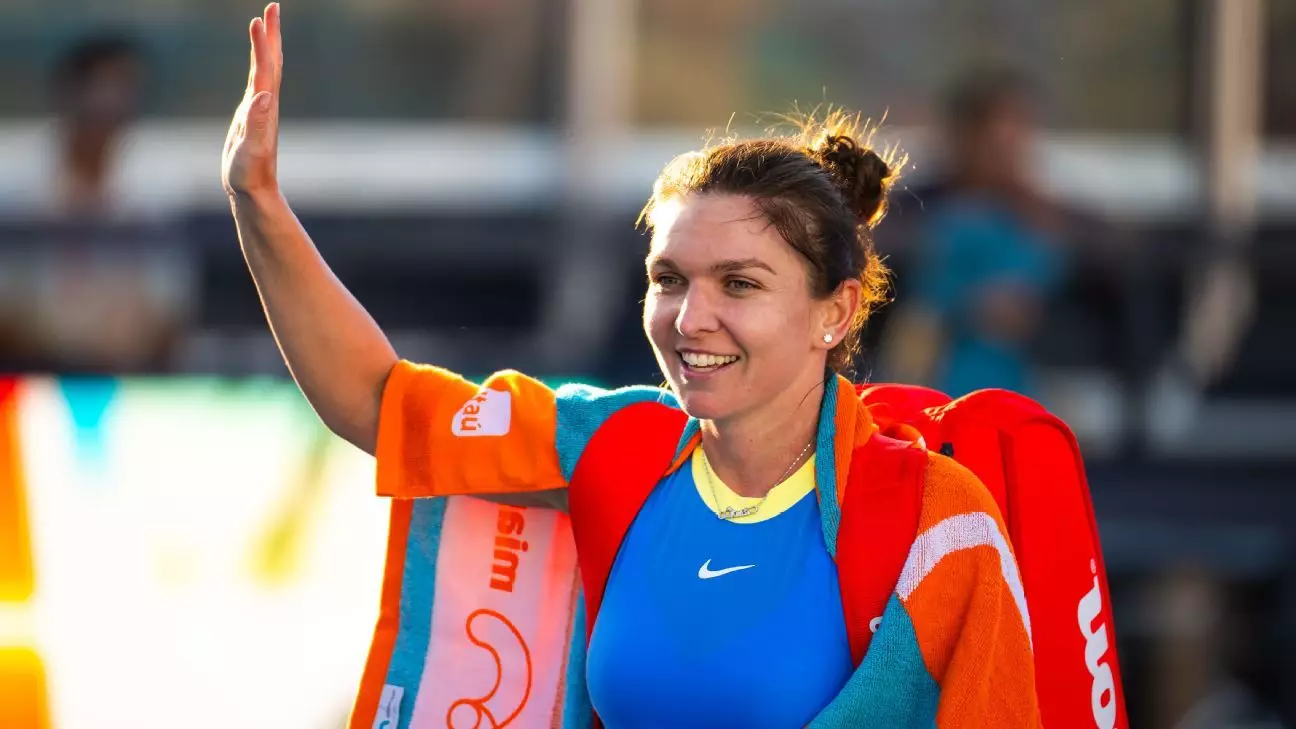Simona Halep, once a prominent figure in women’s tennis, has announced her decision to postpone the commencement of her 2025 season due to ongoing health issues. The former world No. 1 expressed her struggles with knee and shoulder pain, leading her to withdraw from the Australian Open, a tournament she had previously finished as a runner-up in 2018. This delay comes at a critical juncture in her career, especially after a challenging period marked by a doping scandal that saw her suspended and subsequently appealing for a reduced ban.
Halep’s withdrawal not only highlights the physical toll that competitive tennis can take on athletes but also underscores the realities of mental resilience and strategic decision-making essential for longevity in the sport. Despite having received a wild card for the Australian Open qualifying tournament, the Romanian star opted for caution, prioritizing her health over immediate competition. “After playing in Abu Dhabi, unfortunately, I felt pain in my knee and shoulder once again,” she conveyed via social media. This statement reflects her maturity as an athlete, understanding the importance of listening to one’s body in a sport that often demands everything an athlete has to offer.
A Career Marked by Triumph and Trials
Simona Halep’s career has been characterized by noteworthy achievements, including a Grand Slam title at Wimbledon in 2019. However, her recent struggles have marred her trajectory. Following a provisional suspension after testing positive for ruxolitinib—a substance that enhances red blood cell production—her return to competitive play has been riddled with uncertainty. Although her ban was truncated to nine months following an appeal, the aftermath of the doping case has significantly impacted her ranking, plunging her to a staggering 877th position. This steep fall from grace not only reflects the competitive nature of professional tennis but also the profound effects of scandals that can tarnish reputations and hinder careers.
The former champion’s commitment to returning to the court is admirable, with plans to participate in the Transylvania Open in early February at home. Such a decision demonstrates her desire to regain competitive ground in front of local supporters. The emotional weight behind representing one’s country and connecting with fans cannot be underestimated. As she strives for a comeback, it raises questions about her resilience and capacity to overcome both physical ailments and the psychological burden stemming from recent events.
The Path Forward: Expectations and Aspirations
As the 2025 season approaches, Halep’s fans and supporters are left eager yet anxious about her return to the sport. While the Australian Open qualifying rounds commence on January 6, the absence of the former champion will undoubtedly leave a void in the tournament landscape. Halep’s decision to withdraw is not merely a setback; it represents the complexities athletes face while navigating the demands of competition alongside personal health challenges.
In reflecting on Halep’s journey, it is crucial to acknowledge the perseverance required to balance ambition with self-care. As she forges ahead, her narrative may evolve into one of reclamation and inspiration, a testament to the enduring spirit of athletes battling against the odds. With time and healing, the prospect of Halep reclaiming her place amongst the sport’s elite remains a hopeful narrative—one that many will be watching as the new season unfolds.

